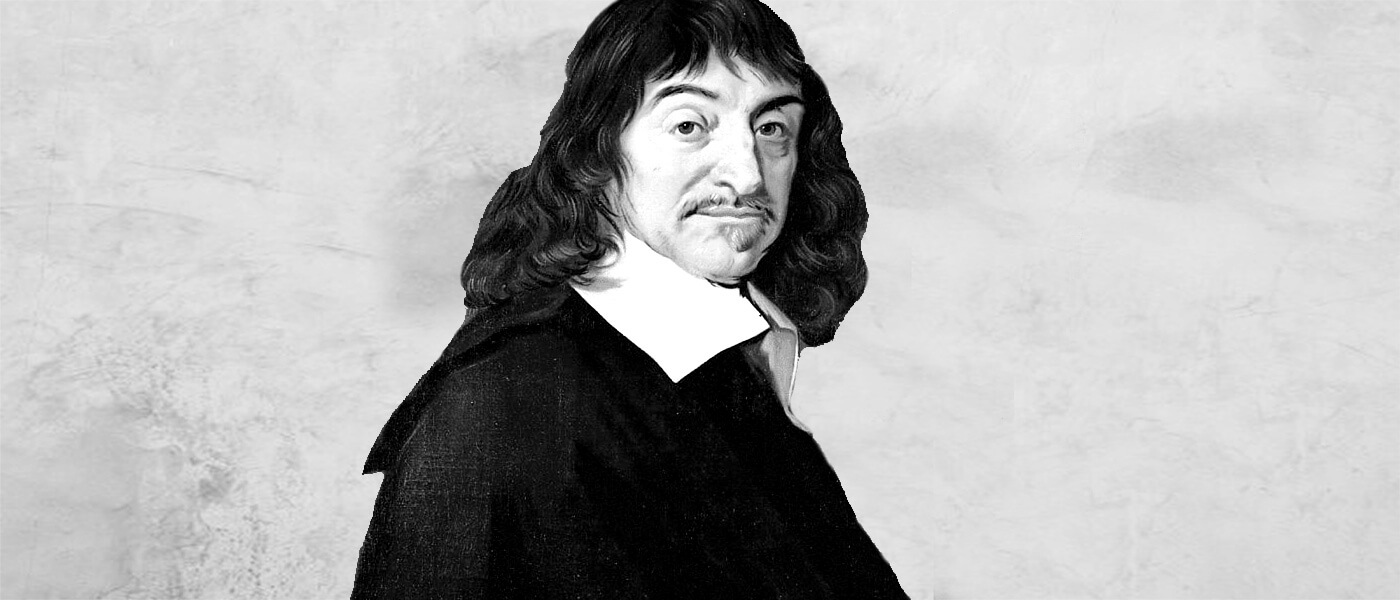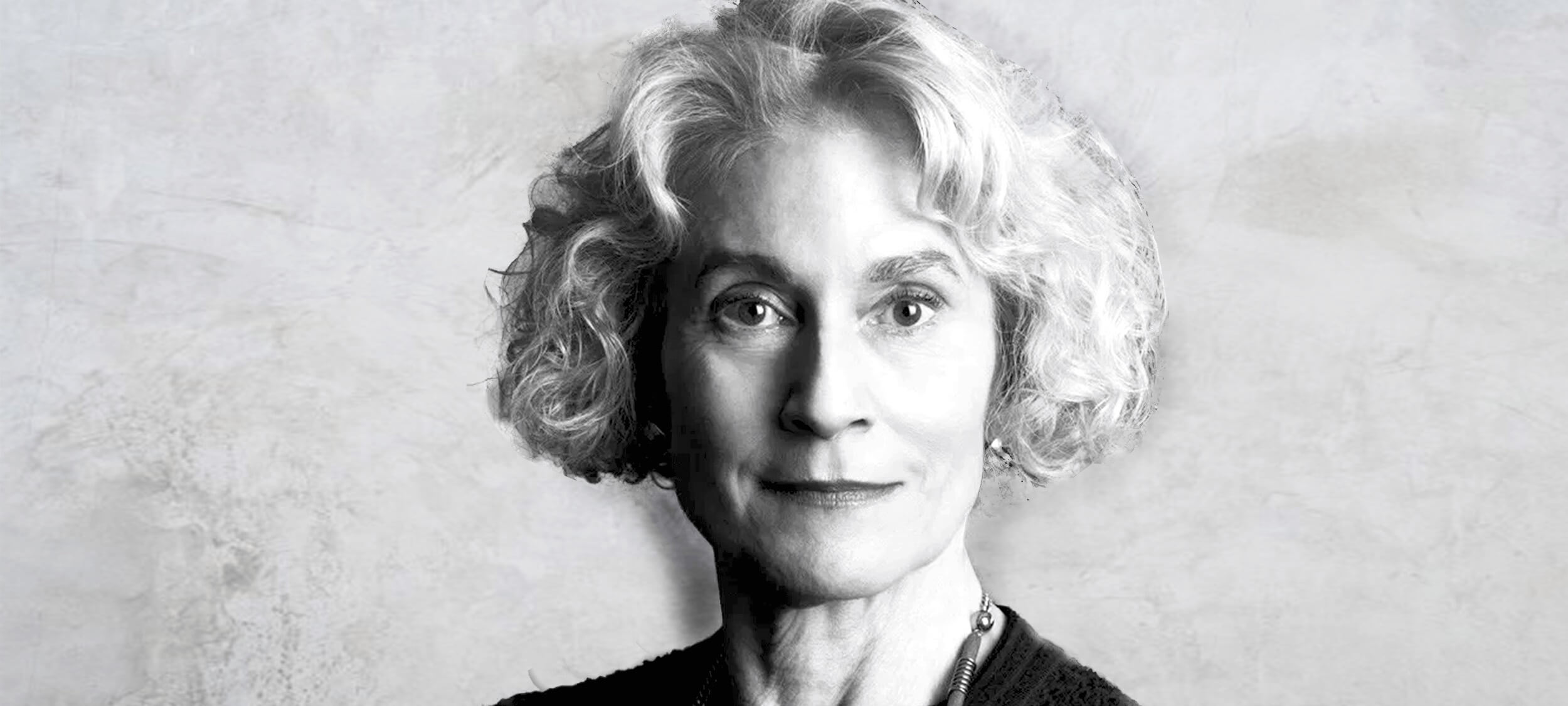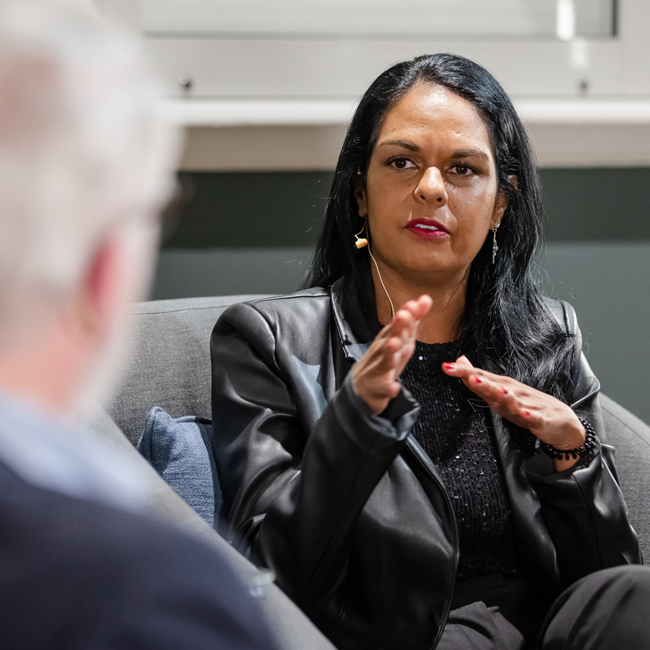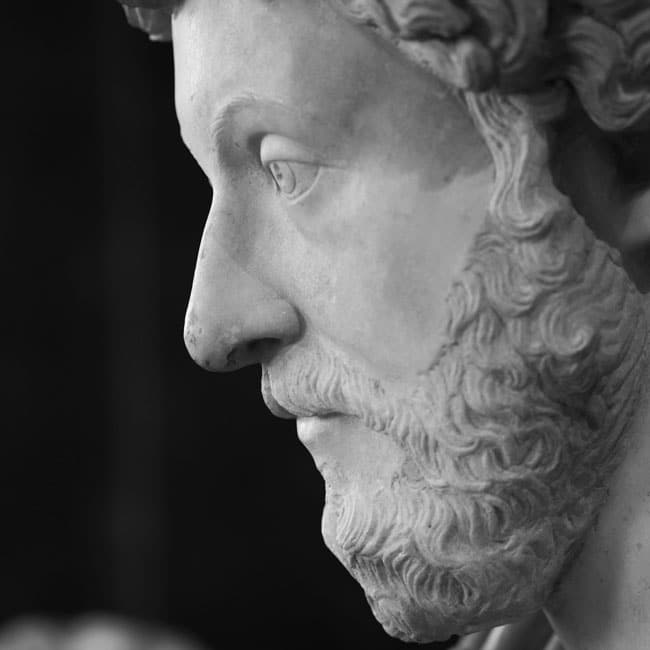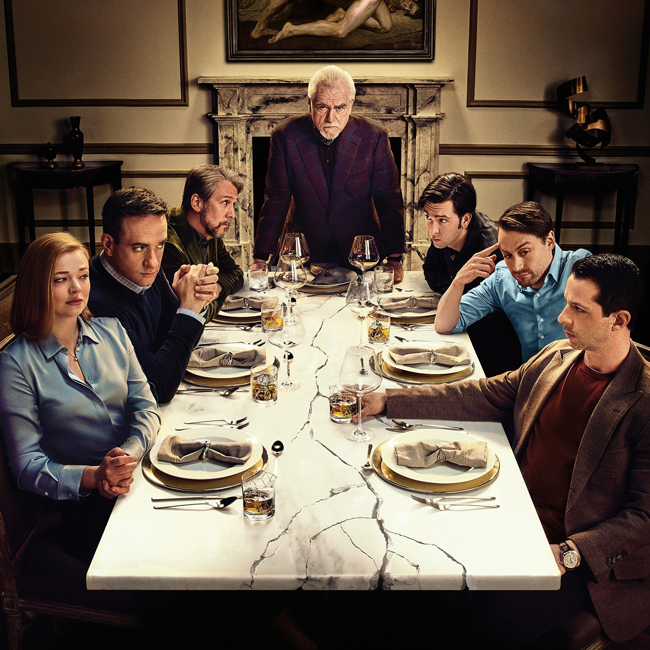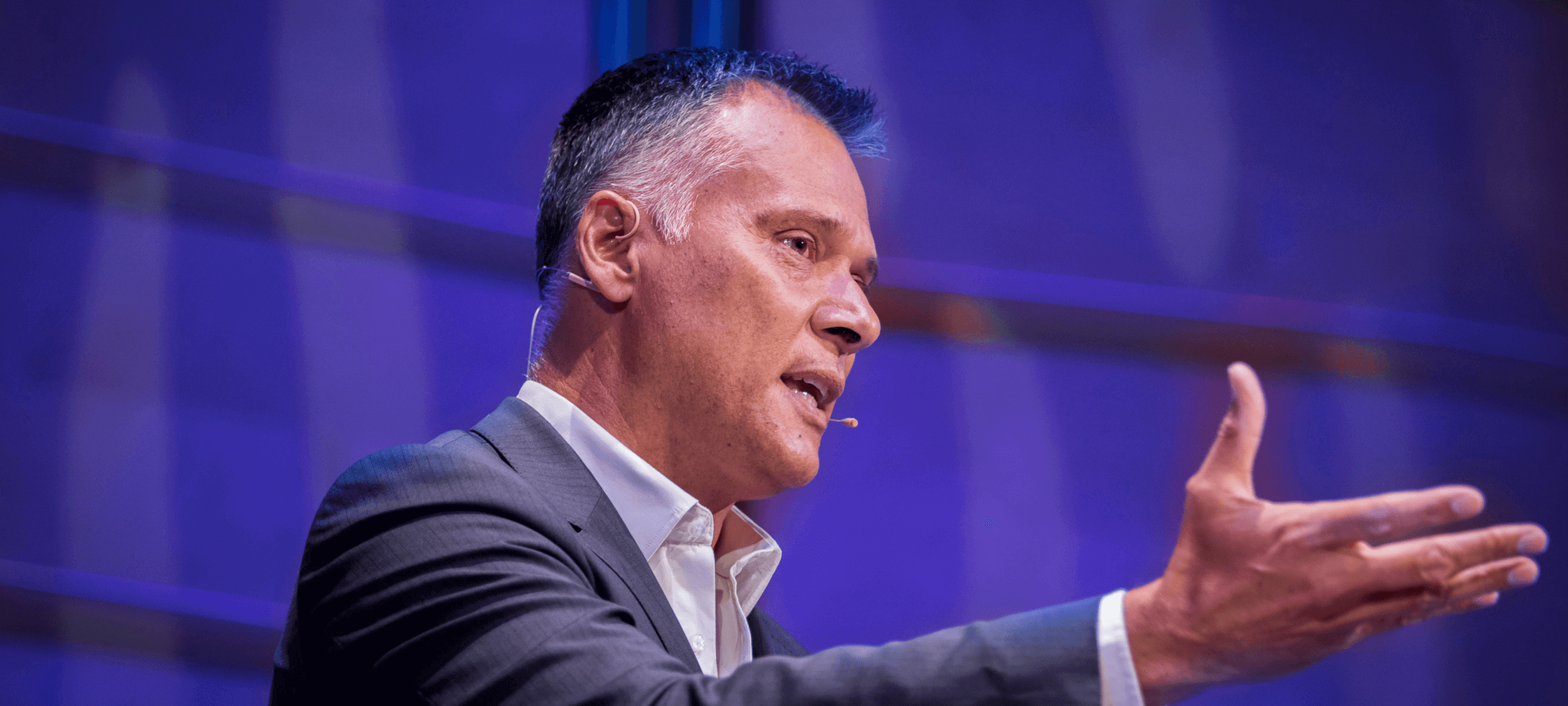Why businesses need to have difficult conversations

Why businesses need to have difficult conversations
Opinion + AnalysisBusiness + Leadership
BY The Ethics Alliance 8 FEB 2022
Let’s step back to examine the ethical foundation for conversation as seen by Socrates, who engaged in dialogue to converse.
This process involved asking and answering questions with the intent of sharing views in pursuit of a common goal towards a common good. This would then create a mutually accepted direction preventing any one person from pursuing a self-interested good.
Socrates felt these conversations allowed each to hold the other to account if what was presented was untrue. This process of back and forth questioning and answering draws on qualities of friendship, such as sharing, and allowing equal and fair time to respond, all while acknowledging the value and importance of each other’s points of view.
But what if you’re not friends? Or what if you feel your view should be prioritised? Conversations become essential when there is an urgency to resolve disagreements and there is a complex array of relationships with stakeholders who could be harmed or could benefit from the decisions that need to be made.
We are seeing this play out in all parts of society in attempts to address climate change.
There was a time in the 1900s when mining was crucial to the colony, with steamships, railways and steam mills playing a vital role in developing Australia’s economy. Today we recognise that past behaviour has and continues to contribute to the climate crisis.
Different organisations will be at different maturity stages in their path to a net zero future. There will be unintended consequences and changes in trajectories. To trust this process so that we can feel confident in addressing the trade-offs, we need to better understand it and be comfortable having these conversations.
What is missing that is preventing discussions from being focused on the ‘common good’?
Currently there is a stalemate at the Resolution Copper mine in Arizona between two Australian mining companies, BHP and Rio Tinto, and the Native American activist group, Apache Stronghold, claiming the land is sacred and shouldn’t be mined. The copper is needed to produce renewable energy and electric vehicles. 11 federally recognised tribes are part of the formal consultation process and they all have differing views around the project. At this stage conversation has failed and they are waiting on the law to determine next moves.
In 2023 a windfarm in Kaban, 49km south of Mt Emerald, QLD is due to start operations powering 96,000 homes. The project area includes 129 hectares of threatened species habitat and is home to greater gliders and the brood frog. The work done to date has come under heavy criticism from local conservation groups who see destroying the rich biodiversity as a means for greater wind energy as a complete oxymoron.
The issue is polarising for the general community, though, with some people seeing the project as a positive opportunity for employment and making the most out of a situation they feel they have no control over.
Others, like traditional owner Joyce Bean, broke down and cried after seeing the destruction caused to the land, saying “we didn’t have a say in it”. Traditional owners don’t have veto rights over projects on lands they claim native title on.
The acknowledgment of people’s dignity and worth is a principal element of a conversation. Has a lack of power or recognition eventuated in the local community being omitted from the conversation?
A TED Countdown Summit in Edinburgh was a platform for a difficult and at times emotional conversation on the trajectory of decarbonisation. The guests included Royal Dutch Shell’s global CEO, Ben van Beurden; Chris James, founder of the activist fund Engine No. 1; and Lauren MacDonald, a Scottish climate activist. The platform was formatted in such a way that each speaker was asked to present their position in addressing decarbonisation and the other two could ask a question of them which would then be answered – much like the Socratic method of enquiry.
The conversation broke down when MacDonald passionately presented a statement and question to van Beurden but was unable to stay sharing the stage to hear the answer with the person she felt was responsible for a crisis situation in Scotland. The organisation had lost legitimacy in her eyes. The result was no conversation.
Greg Joiner, VP Renewables and Energy solutions at Shell, recognises how difficult it is to turn people’s views when trying to explain Shell’s corporate strategy to reach net zero by 2050. He explains that playing a significant role in transitioning the energy sector ‘is not linear, it’s dynamic and iterative and there are unintended consequences”. He says that often models need to be redesigned creating discontinuities which are challenging for everyone and leave an organisation open to greenwashing accusations.
Does this suggest the best way forward is to not have conversations but rather do the work, meet the targets and let the results speak for themselves?
What is the benefit of conversation? As much as the exchange of ideas and thoughts is important, the ability to listen may be more so. In conversations we learn about people’s values and principles and emotional investment. We also gain insight into how others interpret and evaluate our ideas. All of this helps to develop empathy and think of new ways to approach a complex situation.
If we want to embed ethics into our business and decision-making, we need to continuously encourage conversations that monitor the circumstances and be willing to change our minds.
Trying to change people’s views or omit them from the discussion hinders or prevents the conversation. As humans we are fallible and opening ourselves up to different perspectives, even those we disagree with, creates new possibilities. If we want to protect ourselves, the animals and biodiverse planet we live on, we need to have conversations.
A Socratic discussion shows that how we communicate is often more important than what we say. We don’t need to be friends, but if we start conversations from a place of curiosity and respect, sharing and providing equal opportunity for reciprocity, then the conversation can remain mutually supportive, and we can successfully pursue a ‘common good’.

This article was originally written for The Ethics Alliance. Find out more about this corporate membership program. Already a member? Log in to the membership portal for more content and tools here.
Ethics in your inbox.
Get the latest inspiration, intelligence, events & more.
By signing up you agree to our privacy policy
You might be interested in…
Opinion + Analysis
Business + Leadership, Science + Technology
Big tech knows too much about us. Here’s why Australia is in the perfect position to change that
Opinion + Analysis
Business + Leadership, Relationships, Society + Culture
Extending the education pathway
Opinion + Analysis
Business + Leadership, Health + Wellbeing
Feeling rules: Emotional scripts in the workplace
Opinion + Analysis
Business + Leadership, Relationships
The transformative power of praise
BY The Ethics Alliance
The Ethics Alliance is a community of organisations sharing insights and learning together, to find a better way of doing business. The Alliance is an initiative of The Ethics Centre.
Why we should be teaching our kids to protest

Why we should be teaching our kids to protest
Opinion + AnalysisPolitics + Human RightsRelationships
BY Dr Luke Zaphir 3 FEB 2022
When the Prime Minister says classrooms shouldn’t be political and students should stay in school, that’s an implicit argument about what kinds of citizen he thinks we should have.
It’s not unreasonable. The type of citizen who has not gone out to protest will have certain habits and dispositions that are desirable. Hard-working, diligent, focused. However, the question about what it means to be a citizen and how to become one is complicated and not one that any one person has the truth about.
Let’s go back to basics though. What’s the point of education? It’s to prepare children for life. Many would claim it’s to get children ready for work, but if that was the case we would put them in training facilities rather than schools. Our education systems have many tasks – to make children work ready to be sure, but also to develop their personhood, to allow them to engage in society, to help them flourish. Every part of the curriculum, from its General Capabilities of critical and creative thinking to the discipline specific like technologies, is designed to provide young people with the skills, knowledge and dispositions necessary for being 21st century citizens.
What many don’t realise is that learning what it means to be a citizen isn’t localised to the curriculum. Interactions with parents, teachers, with each other, with news and social media – all of these contribute to the definition of a citizen.
Every time a politician says that children should be seen and not heard, that’s an indication of the type of citizen they want.
Most politicians don’t want kids out protesting after all – not only is it disruptive to whatever is in school that day, it looks really bad on the news for them. Protests are bad news for politicians in general and if children are involved, there’s no good way to spin it.
But we do want children to learn how to protest. We want them to be able to see corruption and have discussions and heated debates and embrace complexity. Everyone should have the ability to say their piece and be heard in a democracy. This is something that we’ve already recognised as persuasion is a major part of education and has been for years.
However, when we talk about this, we need to recognise that we aren’t just talking about skills or knowledge. This isn’t putting together a pithy response or clever tweet. It’s about being capable of contributing to public discourse, and for that, we need children to hold certain intellectual virtues and values.
An intellectual virtue refers to the way we approach inquiry. An intellectually virtuous citizen is someone who approaches problems and perspectives with open-mindedness, curiosity, honesty and resilience; they wish to know more about it and are truth seeking, unafraid of what terrors lie in it.
If virtues are about the willingness to engage in inquiry, intellectual values are the cognitive tools needed to do so effectively. It’s essential in conversation to be able to speak with coherence; an argument that doesn’t meaningfully connect ideas is one that is confusing at best, and manipulative at worst. If we’re not able to share our thoughts and display them clearly, we’re just shouting at each other.
Values and virtues are difficult to teach though. You can’t hold up flash cards and point to “fallibility” and say “okay, now remember that you can always be wrong”. We have cognitive biases that stand between us and accepting a virtue like “resilience to our own fallibility” – it feels bad to be wrong. The way we learn these habits of mind is through practice, through acceptance and agreement. Teachers, parents and adults can all develop these habits explicitly through classroom activities, and implicitly by modelling these behaviours themselves.
If a student can share their ideas without fear of being shut down by authority, they’ll develop greater clarity and coherence. They’ll be more open-minded about the ideas of others knowing they don’t have to defensively guard their beliefs.
To the original question of what it means to be a good citizen in a global context: we want our children to develop into conscientious adults. A good citizen is able to communicate their ideas and perspectives, and listen to the same from others. A good citizen can discern policy from platitude, and dilemmas from demagoguery.
But it takes practice and time. It takes new challenges and new contexts and new ideas to train these habits. We don’t have to teach students the logistics of organising a revolution or how to get elected.
And if we’re not teaching them when or why they should protest, we’re not teaching them to be good citizens at all.
Ethics in your inbox.
Get the latest inspiration, intelligence, events & more.
By signing up you agree to our privacy policy
You might be interested in…
Opinion + Analysis
Business + Leadership, Health + Wellbeing, Relationships
Moving on from the pandemic means letting go
Big thinker
Politics + Human Rights
Big Thinker: Judith Jarvis Thomson
Opinion + Analysis
Climate + Environment, Relationships
“Animal rights should trump human interests” – what’s the debate?
Opinion + Analysis
Health + Wellbeing, Relationships
How to pick a good friend
BY Dr Luke Zaphir
Luke is a researcher for the University of Queensland's Critical Thinking Project. He completed a PhD in philosophy in 2017, writing about non-electoral alternatives to democracy. Democracy without elections is a difficult goal to achieve though, requiring a much greater level of education from citizens and more deliberate forms of engagement. Thus he's also a practicing high school teacher in Queensland, where he teaches critical thinking and philosophy.
Is the right to die about rights or consequences?

Is the right to die about rights or consequences?
Opinion + AnalysisPolitics + Human Rights
BY Joshua Pearl 31 JAN 2022
Of all public policy debates, voluntary assisted dying is an ethical debate as much as any other, made clear by the recent impassioned speeches on the floor of the New South Wales parliament and the accompanying public debate.
The various arguments for and against voluntary assisted dying are motivated by a range of different reasons. For some it’s by personal experiences and time spent with dying loved ones. For others it’s by views on human dignity – reasons that are used both for and against. Many arguments are motivated instead by a deep belief in the existence of God, and what this means for how we treat others.
While there may be no “best way” to consider and assess the case for and against voluntary-assisted-dying, it seems to me that a useful approach is to focus on two central ethical issues:
- The level of rights an individual has over their body
- Whether legalised voluntary assisted dying makes a society worse-off due to the negative consequences that may ensue, such as increased self-harm in the broader population or individuals being pressured to prematurely end their lives.
The rights case for voluntary assisted dying largely centres on an individual’s self-ownership rights – what they are permitted to do with their bodies. These rights do not rest on any consequential benefits that might arise, such as a more cohesive society or a happier public, but are natural rights, without further need of justification.
If people have self-ownership rights in a strong sense – for example, they can do as they please with their bodies, free from any external government interference – then it seems the proposed NSW voluntary assisted dying bill does not go far enough.
Patients must have a condition that is advanced, progressive and will cause death within six months (or 12 months for a neurodegenerative disease). This timeframe appears unfair because it means patients with higher levels of pain who are further from the relief of death will suffer more, for longer. If anything, a person experiencing a higher level of pain has a greater need for voluntary assisted dying. If we regard incurable psychological suffering as an affliction comparable with physical suffering (a possibility it seems we do take seriously as a society), failing to provide relief for this cohort seems if not unfair, then at least inconsistent.
However, our existing social norms suggest self-ownership rights are not inviolable. We are not allowed to sell our organs, even if to save another person’s life (we can donate them). We are not allowed to sell ourselves into slavery, even if this could raise vital funds our families or children need to lead better lives.
When we impose risks that are great enough, either to ourselves or others, we are restricted from doing things as menial as leaving home after dark, as was the case in parts of south-west Sydney during the COVID-19 lockdowns. Sometimes these restrictions are publicly justified on the basis of being good for the individual (paternalistic reasons), and other times on the basis of being good for society (what economists might call “externality” reasons).
With regard to consequences, from an individual’s perspective, it seems reasonable to suggest that a condition can be so severe, so acute, that life is not worth living. Our existing medical practices align with this view. It is permissible in NSW for doctors to withdraw life-saving treatment at the request of patients and doctors are under no obligation to provide medical treatment when treatment is considered futile. While there is a difference between killing and letting die, this practice suggests it is possible for the benefits of death to outweigh the costs of life.
Therefore, from a consequentialist perspective, it seems to me the primary issue of concern is whether voluntary assisted dying makes society worse. One argument made is that voluntary assisted dying can increase suicides in the general population and pressure vulnerable people to prematurely end their lives. It seems reasonable to accept this is possible and reasonable to accept that we cannot know with full certainty how legalising voluntary assisted dying will impact NSW.
The primary issue of concern is whether voluntary assisted dying makes society worse.
However, these consequential considerations can be informed by looking at the experience of other jurisdictions. Voluntary assisted dying has been legal in the US states of Oregon, Washington and Vermont since 1997, 2009, and 2013 respectively; legal in the Netherlands and Belgium since 2002; and legal in Switzerland since 1918.
Given both sides of the debate argue the evidence is in favour of their own argument, a useful exercise is for the government to commission an independent non-partisan group of experts to analyse the existing data and academic literature, and publicly report back. This would help inform members of NSW Legislative Council when they consider amendments and vote on voluntary-assisted-dying legislation in 2022.
The non-partisan group would analyse how laws have been introduced in other jurisdictions and how these laws have changed over time. The group would ideally look for evidence of whether voluntary assisted dying has increased general population suicides or self-harm, or pressured individuals to prematurely end their lives. They might even consider whether voluntary assisted dying legalisation has numbed or lessened the community spirit, or negatively (or positively) changed the way a community treats and thinks about death.
An independent non-partisan report would provide a greater understanding of the trade-off between individual rights and social consequences. Should it be the case there is near zero risk of negative social consequences, then the case for voluntary assisted dying would seem unassailable. But if there is a risk of increased general population self-harm (for example), the decision then centres on a threshold issue of what level of risk and what level of social impact we are willing to accept.
We might be willing to accept one additional event of self-harm or we might be willing to accept one hundred. We might even be willing to accept that an individual’s rights over their bodies are so strong that patients in agonising pain have a right to voluntary assisted dying, regardless of the social consequences that might result. That is, we might conclude that individual rights trump social consequences.
Should the voluntary assisted dying bill become law, the NSW experience may differ from other jurisdictions due to a range of policy or cultural reasons, which is why it seems an oversight the proposed bill does not require more in the way of future data collection and future reviews (something that could be undertaken by the proposed Voluntary Assisted Dying Board). This amendment would aid future debates (should the bill be passed by the NSW Legislative Council) on whether voluntary assisted dying should be expanded, amended, or even repealed.
It seems to me, the proposed voluntary assisted dying bill permits too little where rights are concerned by setting too strict a timeframe on nearness to death, and permits too much where consequences are concerned by not adequately taking into account the potential for negative social consequences.
The proposed bill and the ethical debate would be improved by considering ways to treat individuals consistently and fairly, by the government commissioning an independent non-partisan group to publicly report back before the NSW Legislative Council votes on the voluntary assisted dying bill, and by amending the proposed bill to require greater data collection and mandate future reviews.
These measures would enhance our understanding of individual rights and social consequences and enable our politicians to vote with their conscience alongside the relevant facts.
Ethics in your inbox.
Get the latest inspiration, intelligence, events & more.
By signing up you agree to our privacy policy
You might be interested in…
Big thinker
Politics + Human Rights
Big Thinker: Judith Jarvis Thomson
Big thinker
Politics + Human Rights, Relationships
Big Thinker: Mary Wollstonecraft
Explainer
Politics + Human Rights, Relationships
Ethics Explainer: The Harm Principle
Opinion + Analysis
Politics + Human Rights
Where do ethics and politics meet?
BY Joshua Pearl
Joshua Pearl is the head of Energy Transition at Iberdrola Australia. Josh has previously worked in government and political and corporate advisory. Josh studied economics and finance at the University of New South Wales and philosophy and economics at the London School of Economics.
The tyranny of righteous indignation

“It would be better to live under robber barons than under omnipotent moral busybodies. The robber baron’s cruelty may sometimes sleep, his cupidity may at some point be satiated; but those who torment us for our own good will torment us without end for they do so with the approval of their own conscience. They may be more likely to go to Heaven yet at the same time likelier to make a Hell of earth.”
I have been reflecting on this quotation from C.S. Lewis. It seems to contain a warning for our time, when people are inclined to gorge themselves on the nectar of “righteous indignation”. Intoxicated with the sensation of apparent virtue, the “righteous” then set upon anyone who falls beyond their moral pale.
Indignation has no natural political or ideological home. It can be found in equal measure among so-called “progressives” and “conservatives”. Each group has its own ranks of “shock troops” ready to do the most terrible things in the firm belief that they are justified by the rightness of their cause. They are like the sans-culottes of the French Revolution or the Nazi “Brown Shirts” of the last century — convinced that callous indifference should rule the fate of those whom they bully until their targets either retreat or break. Any sense of common decency, based in a recognition of a common humanity, is dissolved in the acid of resentment.
Fortunately, in Australia, righteous indignation rarely gives rise to violence on the streets. Instead, it is enacted, for the most part, in an online environment made all the more vicious by the fact that one can cause harm at a distance (and often cloaked in anonymity) without ever having to confront the awful reality of what is done.
My colleague, Tim Dean, has written about the ethics of outrage, which touches on a number of the matters that I point to above. My intention, here, is to look at a particular philosophical problem with righteous indignation — namely, its tendency to destroy (rather than express) a capacity for virtue. This is not simply a matter of philosophical interest.
The implications of this argument also have practical implications, especially for those who are truly committed to changing the world for the better.
In my experience, most of those who ultimately embrace the excesses of righteous indignation start from an entirely reasonable and defensible position. This is typically grounded in some form of ethical insight — usually relating to a genuine instance of wrong-doing, often involving the oppression of one group of people by another. For example, the ancien régime swept away by the French Revolution was corrupt. The Black Lives Matter (BLM) movement begins with a true insight that some lives (black lives) are being discounted as if they do not matter either at all or as much as the lives of others. Which is to say, BLM is based on valuing all lives. And so it is with most movements: they begin with a genuine and justifiable grievance, which risks being converted into something far less subtle and far more dangerous.
Robespierre undermined the integrity of the French Revolution by harnessing “The Terror” in service of his ideal — the creation of a “Republic of Virtue”. He unleashed the mob to ravage those who differed from them even to the slightest degree of privilege. To be “privileged” was to be doomed — as Robespierre himself discovered when the mob eventually turned on him and despatched him to the guillotine.
Unfortunately, every movement has its “Robespierres”. They amplify the general sense of there being a wrong that needs to be righted. They exploit the sentiments of those with a sincere desire to do good in the world. They fashion an “index of commitment” where you are judged by the extremity of your action — the more extreme, the more committed you are shown to be. Excess of zeal becomes a badge of merit, a token of sincerity.
So, what might this have to do with I’ve called the destruction of virtue? The answer lies in the implications of “excess”. For Aristotle, the phrōnimos (the person of practical wisdom, or phrōnēsis) attains virtue when they rid themselves of the distorting lenses of vice so as to see (and act according to) the “golden mean” — a point between two vicious extremes. For example, the virtue of courage lies between the poles of “reckless indifference to the risk of harm” at one end and “hiding away from danger” at the other. That is, a courageous person has a clear appreciation of danger and takes a measured decision to overcome their fear and stand fast all the same.
Righteous indignation disavows the golden mean. Instead, it creates a counterfeit version of virtue in which the extreme is presented as the ideal.
This distortion leads otherwise good people, with good motives, in the service of a good cause, to do abominable things.
Worse still, those who act abominably are encouraged to think that their conduct is excused because done “in good conscience”. Yet another counterfeit.
It is easy enough to justify all manner of wrongdoing by an appeal to “conscience”. That is why one of the greatest exponents of conscience, St. Thomas Aquinas, insisted that we are only bound to act in conformance with a “well-informed conscience” — and as my friend Father Frank Brennan, SJ, would add, a “well-formed conscience”.
I think it sad to see so many people being sucked into a world of “righteous indignation” that has little, if any, relationship to a conscientious life of virtue. People of virtue exercise ethical restraint. They are not wantonly cruel. They do not index the intrinsic dignity of persons according to the colour of their skin, their culture and beliefs, their sex and gender or their socio-economic status. They know that “two wrongs do not make a right”.
Instead of tormenting others for their own good — and, perhaps, for the good of the world — the virtuous will seek to engage and persuade, exemplifying (rather than subverting) the ideals they seek to promote. If ever there is to be a “Republic of Virtue”, it will have no place for the righteously indignant.
This article originally appeared on ABC Religion & Ethics.
Ethics in your inbox.
Get the latest inspiration, intelligence, events & more.
By signing up you agree to our privacy policy
You might be interested in…
Big thinker
Relationships
Big Thinker: René Descartes
Opinion + Analysis
Relationships
Courage isn’t about facing our fears, it’s about facing ourselves
Opinion + Analysis
Relationships
The ethics of friendships: Are our values reflected in the people we spend time with?
Big thinker
Relationships
Big Thinker: Martha Nussbaum
BY Simon Longstaff
Simon Longstaff began his working life on Groote Eylandt in the Northern Territory of Australia. He is proud of his kinship ties to the Anindilyakwa people. After a period studying law in Sydney and teaching in Tasmania, he pursued postgraduate studies as a Member of Magdalene College, Cambridge. In 1991, Simon commenced his work as the first Executive Director of The Ethics Centre. In 2013, he was made an officer of the Order of Australia (AO) for “distinguished service to the community through the promotion of ethical standards in governance and business, to improving corporate responsibility, and to philosophy.” Simon is an Adjunct Professor of the Australian Graduate School of Management at UNSW, a Fellow of CPA Australia, the Royal Society of NSW and the Australian Risk Policy Institute.
Can there be culture without contact?

Can there be culture without contact?
Opinion + AnalysisBusiness + Leadership
BY The Ethics Alliance 24 JAN 2022
COVID-19 has stripped offices everywhere of employees and disrupted and transformed workplace culture. Fiona Smith investigates if office conduct has suffered a COVID fall-out.
Human Resource executives all across Australia share one burning question: How can their companies lure employees back into the office?
In little more than 14 months, COVID-19 has overturned decades of corporate culture – one in which employees sat at their desks during work hours, communed in canteens and coffee shops and partied in pubs and wine bars before taking part in the traditional commute. Some thought the end of lockdown would bring them flocking back to the cities.
Instead, working from home has spawned a new world of options, brought families closer together, made life partners work partners and sparked the redesigning of our homes to permanently include everything needed to telecommute.
It’s a subject that’s dominating headlines and research reports, and the results of The Ethics Alliance Business Pulse confirm it – employees and leaders alike now place a high value on flexibility. Sixty-three per cent of survey respondents say they prefer a hybrid model that blends the benefits of working from home and face-to-face time.
41% of Australians with a job work from home at least once a week
16% of people working remotely say they struggling with loneliness
14% of global employees say they work for an organisation with a strong ethical culture
77% of people say that being able to work from home post-COVID-19 would make them happier
(2021 data from ABS, Buffer State of Remote Work survey, Ethics and Compliance Initiative, and Owl Labs)
The survey finding subverts the idea that executive teams are in favour of employees returning to the office over any other workplace model. Seventy-seven per cent of respondents hold senior roles from managerial to board director positions and only 14 per cent can be considered to be ‘workers’.
At stake is more than just the use of real estate – it’s how organisations can continue to provide a satisfying workplace for their employees and how they can lay the foundation for future success. Many believe workplace culture – the neurodiversity effect of being among many of different abilities and opinions – is an essential driving force that creates new initiatives, gives projects their impetus and is the petri dish of business ideas. Others say new management techniques are needed to respond to a pandemic generational change.
New management techniques are needed to respond to a pandemic generational change.
Business leaders are coming to terms with the fact that a sizeable proportion of their workforces now comprise ‘COVID hires’ – people recruited in the past 18 months who haven’t set foot in the office.
Consultancy firm and The Ethics Alliance member Accenture is a case in point. The firm replenishes its ranks by hiring 100,000 people worldwide every year, a number that amounts to almost 20 per cent of its total workforce. That’s a lot of people to integrate into a workplace culture over 12 months – especially when done remotely and in a time of crisis.
Each new hire is screened for their ‘cultural fit’ and receives an induction into Accenture’s workplace systems, as well as its code of conduct.
This onboarding process gets staff ready to work and aims to ensure that they undertake their work at Accenture in the right way. When workplace culture is designed around contact, how can it be maintained when 20 per cent of the workplace have never been face-to-face with their new colleagues? And does it matter?
“The only cultural reference framework for employees is a conversation over these virtual meetings.They do the training, but they don’t see it in action.”
Bob Easton, Chairman of Accenture Australia & New Zealand, says people are slowly coming back to the office in Australia, but there are still many new Accenture employees around the world who have never met a colleague or client face-to-face.
“The only cultural reference framework for them is a conversation over these virtual meetings,” he says. “They do the training, but they don’t see it in action.”
Leaders question whether it is possible to embed an organisational culture when people can’t meet face-to-face. Before and after physical meetings, employees engage in small talk that can help promote a sense of communal belonging. When Zoom meetings end, the screen goes dark.
Dr Marc Stigter, Associate Director at Melbourne Business School, says managers are warning that the pandemic has created a ‘pressure cooker’, particularly for top managers and middle managers who are dealing with isolation, ‘Zoom fatigue’ and job insecurity.
“They have many kinds of challenges, but they still need to mobilise their teams and take those people with them,” says Dr Stigter, an international strategist who recently completed research for the Australian Human Resources Institute on the impact of the pandemic. “The workforce, in general, is under pressure to demonstrate value all the time,” he says.
Elisabeth Shaw, CEO of Relationships Australia NSW, believes companies now have two workplace cultures. There’s one group of employees who know each other well from working in the office and can draw on their past work stories and continue to create certain rituals, like sharing Friday night drinks in person or on Zoom. And another group who only know each other online. As they have never met physically, they will have to draw on their virtual relationship and Zoom meetings to build a bank of group memories.
One way of bridging the two work cultures is to have a buddy from each group looking after and creating cultural learnings and rituals to hold the group together. She believes the days of working full-time in the office may well be over as more employees opt to work part-time in the office and the rest at home. Increasingly, employers will have to manage a hybrid work model and create a more flexible work culture.
“The pandemic lockdown which forced employees to work from home, has broken all the old rules,” she says. “The hybrid model of working part-time in the office and part-time at home is going to be more important. It has also benefited more people than expected as many employees do not feel torn or stressed, as they can have a better work-life balance. They can now pick up their kids from school as they are not spending so much time travelling to and from work.
“This will mean a more diverse workplace where employers will be able to employ interstate workers or people working remotely from the country region which they previously would not have considered.”
A hybrid model “will mean a more diverse workplace where employers will be able to employ interstate workers or people working remotely”.
Shaw, who is a clinical and counselling psychologist, also suggested the hybrid model may lead to more business savings as employers can downsize their office space and rent large conference rooms when staff are required to attend whole day seminars or meetings.
However, employers will have to build certain business rules so that staff do not take undue advantage of flexible working hours. “We will have to navigate the needs of our customers, employers and employees as we move to a more flexible workplace,” she said.
However, she admitted that a flexible workplace is not the ‘Holy Grail’ for everybody. Some people still prefer face-to-face meetings, especially when they have to discuss a difficult workplace situation. “For online workers, it is not easy to navigate and read the signs that some people are not connected,” she said.
The office as ‘honeypot’
Domino Risch, workplace designer and Principal at design studio Hassell, says it’s possible to create a cohesive workplace even while adopting a hybrid work-from-home/work-from-office model. She says an appealing workplace can renew workplace culture on those days that employees are back in the office.
Risch says workplaces need to become more like ‘collective clubhouses’ if they are to create the sense of belonging that humans have developed over millions of years as social, group-based creatures who almost always work better together than alone.
Aside from creating workplaces that have been designed with human wellbeing in mind – that cater to our biophilia (our tendency to seek connections with nature and other forms of life) and our need for sensory diversity – they also need to deal in intangibles that create a more human-centric environment.
“What we’ve all missed from working from home is not our office or desk chair,” says Risch. Surveys around the world have found “people have missed people. They’ve missed contact, incidental conversation, debriefs on the way out of a meeting, overheard conversations in corridors and the opportunity to talk to people without it needing to be scheduled or online.”
Surveys around the world have found “people have missed people”.
She says these findings give us a clue as to how workplaces need to shift in terms of their fundamental purpose. Attracting people back into the office means creating spaces for collaboration, co-creation, synchronous thinking and shared storytelling. It’s only the very best design firms that can take a client’s strategic aspiration and intent, and use them to create a humanistic design solution, she adds.
The alternative to the collective idea, says Risch, are “factories of individual productivity”. These are offices that are simply a property and accommodation tool, and which lack all the requisite human aspects of good workplace design.
“Many of the organisations we work for ask us to think about ways to test, experiment, plan for and strategise exactly what the ‘collective clubhouse’ idea means for them,” she says.
“It’s super important to note though, that there is no magic wand. There is no one-size-fits-all solution – every organisation is different, with different values, culture, leadership and capability (and appetite!) for change.”
One thing’s for certain, Risch says, “fifteen months of a pandemic is never going to reverse the desire we have for belonging and contact – if anything it’s stronger now than ever before”.
Reflection from John Neil, Director of Innovation, The Ethics Centre
The idea that employees should return to the office represents a watershed – our response to immediate post-COVID challenges will set a course for what the future of work itself will look like.
Leaders can start by embracing the opportunity to reimagine what a creative, adaptable and human-centred working world can look like. They should be mindful of the powerful sunk cost biases and status quo at play. Our formative ways of working during COVID helped to dispel many of these, such as the belief that productivity is tethered to surveillance and control and that trust between employees and their employees can only be maintained when sharing the same four walls.
Culture is a manifestation of the physical environment and human relationships. Regardless of the relative configuration of office versus remote hours, the ability to be adaptive and responsive, to innovate and effectively deliver value, is closely correlated to culture – and particularly to levels of psychological safety.
Leaders therefore can have the biggest immediate impact in responding to their post-COVID challenges by doing three things:
• Be consultative – seek input from their teams on issues that directly affect them
• Be supportive – show empathy and concern for their people as individuals, not simply as employees
• Be challenging – invite their teams to think differently by re-examining assumptions about their work and how they can best fulfil their potential.
This article was published as part of Matrix Magazine, an initiative of The Ethics Alliance.
Ethics in your inbox.
Get the latest inspiration, intelligence, events & more.
By signing up you agree to our privacy policy
You might be interested in…
Opinion + Analysis
Business + Leadership
How ‘ordinary’ people became heroes during the bushfires
Opinion + Analysis
Business + Leadership
What are millennials looking for at work?
Opinion + Analysis
Business + Leadership
How avoiding shadow values can help change your organisational culture
Opinion + Analysis
Business + Leadership
Taking the bias out of recruitment
BY The Ethics Alliance
The Ethics Alliance is a community of organisations sharing insights and learning together, to find a better way of doing business. The Alliance is an initiative of The Ethics Centre.
Big Thinker: Kate Manne

Kate Manne (1983 – present) is an Australian philosopher who works at the intersection of feminist philosophy, metaethics, and moral psychology.
While Manne is an academic philosopher by training and practice, she is best known for her contributions to public philosophy. Her work draws upon the methodology of analytic philosophy to dissect the interrelated phenomena of misogyny and masculine entitlement.
What is misogyny?
Manne’s debut book Down Girl: The Logic of Misogyny (2018), develops and defends a robust definition of misogyny that will allow us to better analyse the prevalence of violence and discrimination against women in contemporary society. Contrary to popular belief, Manne argues that misogyny is not a “deep-seated psychological hatred” of women, most often exhibited by men. Instead, she conceives of misogyny in structural terms, arguing that it is the “law enforcement” branch of patriarchy (male-dominated society and government), which exists to police the behaviour of women and girls through gendered norms and expectations.
Manne distinguishes misogyny from sexism by suggesting that the latter is more concerned with justifying and naturalising patriarchy through the spread of ideas about the relationship between biology, gender and social roles.
While the two concepts are closely related, Manne believes that people are capable of being misogynistic without consciously holding sexist beliefs. This is because misogyny, much like racism, is systemic and capable of flourishing regardless of someone’s psychological beliefs.
One of the most distinctive features of Manne’s philosophical work is that she interweaves case studies from public and political life into her writing to powerfully motivate her theoretical claims.
For instance, in Down Girl, Manne offers up the example of Julia Gillard’s famous misogyny speech from October 2012 as evidence of the distinction between sexism and misogyny in Australian politics. She contends that Gillard’s characterisation of then Opposition Leader Tony Abbott’s behaviour toward her as both sexist and misogynistic is entirely apt. His comments about the suitability of women to politics and characterisation of female voters as immersed in housework display sexist values, while his endorsement of statements like “Ditch the witch” and “man’s bitch” are designed to shame and belittle Gillard in accordance with misogyny.
Himpathy and herasure
One of the key concepts coined by Kate Manne is “himpathy”. She defines himpathy as “the disproportionate or inappropriate sympathy extended to a male perpetrator over his similarly, or less privileged, female targets in cases of sexual assault, harassment, and other misogynistic behaviour.”
According to Manne, himpathy operates in concert with misogyny. While misogyny seeks to discredit the testimony of women in cases of gendered violence, himpathy shields the perpetrators of that misogynistic behaviour from harm to their reputation by positioning them as “good guys” who are the victims of “witch hunts”. Consequently, the traumatic experiences of those women and their motivations for seeking justice are unfairly scrutinised and often disbelieved. Manne terms the impact of this social phenomenon upon women, “herasure.”
Manne’s book Entitled: How Male Privilege Hurts Women (2020) illustrates the potency of himpathy by analysing the treatment of Brett Kavanaugh during the Senate Judiciary Committee’s investigation into allegations of sexual assault levelled against Kavanaugh by Professor Christine Blassey Ford. Manne points to the public’s praise of Kavanaugh as a brilliant jurist who was being unfairly defamed by a woman who sought to derail his appointment to the Supreme Court of the United States as an example of himpathy in action.
She also suggests that the public scrutiny of Ford’s testimony and the conservative media’s attack on her character functioned to diminish her credibility in the eyes of the law and erase her experiences. The Senate’s ultimate endorsement of Justice Kavanaugh’s appointment to the Supreme Court proved Manne’s thesis – that male entitlement to positions of power is a product of patriarchy and serves to further entrench misogyny.
Evidently, Kate Manne is a philosopher who doesn’t shy away from thorny social debates. Manne’s decision to enliven her philosophical work with empirical evidence allows her to reach a broader audience and to increase the accessibility of philosophy for the public. She represents a new generation of female philosophers – brave, bold, and unapologetically political.
Ethics in your inbox.
Get the latest inspiration, intelligence, events & more.
By signing up you agree to our privacy policy
You might be interested in…
Opinion + Analysis, READ
Society + Culture, Relationships
Losing the thread: How social media shapes us
Opinion + Analysis
Health + Wellbeing, Relationships
To live well, make peace with death
Opinion + Analysis
Relationships
Want men to stop hitting women? Stop talking about “real men”
Big thinker
Relationships
Big Thinker: Jean-Paul Sartre
BY The Ethics Centre
The Ethics Centre is a not-for-profit organisation developing innovative programs, services and experiences, designed to bring ethics to the centre of professional and personal life.
Freedom and disagreement: How we move forward

Freedom and disagreement: How we move forward
Opinion + AnalysisRelationships
BY Georgia Fagan 17 JAN 2022
As it stands, the term “freedom” is being utilised as though it means the same thing across a variety of communities.
In the absence of a commitment to expand discourse between disagreeing parties, we may regrettably find ourselves occupying an increasingly polarised society, stricken with groups which take communication with one another as being a definitively hopeless exercise.
Freedom and its nuances have come poignantly into focus over the past two and a half years. Ongoing deliberation about pandemic rules and regulations have seen the notion being employed in myriad ways.
For some, freedom, and one’s right to it, has meant demanding that particular methods of curtailing viral spread remain optional and never be mandated. For others, the freedom to retain access to secure healthcare systems and avoid acquiring illness has meant calling for preventative methods to be enforced, heavily monitored, and in some cases made mandatory. Across most perspectives, individual freedoms are taken as having been directly impacted to degrees not previously experienced.
The concept of freedom, for better or worse, reliably takes centre stage in much political debate. The ways we conceive of it and deliberate on it impacts our evaluation of governmental action. It appears however that the term often comes into conflict with itself, forming what may be characterised as a linguistic impasse, where one usage of freedom is evidently incompatible with another.
Canonical political philosopher Hannah Arendt addresses the largely elusive (albeit valorised) term in her paper, ‘What is Freedom?’. In it, she emphasises its inherent confusion: “…it becomes as impossible to conceive of freedom or its opposite as it is to realize the notion of a square circle.” Despite the linguistic and conceptual red flags which freedom bears, Arendt, and many others, persist in grappling with the topic in their work.
I am also sympathetic to the commitment to ongoing deliberation on the matter of freedom. Devoting time to understanding visible impasses which arise in its usage appears vital. Doing so aids in encouraging productive discussions on matters of how states should act, and to what extent a populace should comply with political directives.
As these are discussions central to the maintenance and progression of liberal democratic societies, we should feel motivated to formulate responses in situations where one conception of freedom comes into conflict with another.
The seemingly inevitable inaccuracies embedded within the concept of freedom and the difficulties inherent in the project of discriminating between the emancipatory and the oppressive remains evident across recent political rhetoric and subsequent public response. From 2020, many politicians began using the term freedom to emphasise the need to make present sacrifice for future gain, and to secure safety for vulnerable populations by curtailing the spread of COVID-19. For some, this placed politicians in the camp of the emancipators, working to defend our freedom against a looming viral force. In contrast, those who opposed measures such as lockdowns took the relevant enforcers to be oppressors, acting in total opposition to a treasured freedom of movement and individuated determination.
Both those in favour of and those opposed to lockdowns were seen utilising the term freedom in the public arena, yet freedom to the former necessarily required a certain degree of political intervention, and freedom to the latter firmly required a sovereignty from political reach. This self-oriented sovereignty is one in which freedom is experienced not in our relation to others, but individualistically, through the deployment of free will and a safety from political non-interference. While these two differing utilisations of freedom are broad and not immutable, they do provide a useful starting point from which to assess contemporary impasses.
Commitment to sovereignty as necessary for a commitment to freedom is not a new position, nor is it reliably misplaced. The individual who decries re-introduced mask mandates, or vaccines being made compulsory in workplaces evidently takes these actions as being incompatible with the maintenance of freedom, and a free society more broadly. Their sovereignty from political interference is necessary for their freedom to persist.
Both historically and contemporarily, many have seen it essential to measure their own freedoms by the degree to which states did not unduly intervene upon realms of education, religion, or health. We know countless instances where political reach has chocked public freedoms to undesirable extents. Those in opposition to vaccine mandates, for example, may take freedom to begin wherever politics ends, thinking it best to safeguard their liberties with one hand while defending against political reach with the other.
In contrast, politicians and individuals who deem actions such as vaccine mandates, lockdowns, and the like as necessary for the maintenance of long-term social freedoms are seen as upholding a competing notion of freedom. For this group, politics and freedom are beyond compatible, they are deeply contingent upon one another. On this conception, emancipation from political reach would result in a breakdown of society, where inevitably some personal liberties would be infringed upon by others.
This position of the compatibility between freedom and politics is articulated and advocated for by Arendt. Arendt argues that sovereignty itself must be surrendered if a society is ever to be comprehensively free. This is because we do not occupy earth as individuals, but as communities, moreover, political communities, which have been formed and continue to be maintained due to the freedom of our wills. “If men wish to be free,” she writes, “it is precisely sovereignty they must renounce.”
The point here is not to say that individual rights are of no importance to political systems, or to freedom more broadly. Rather, it suggests that a comprehensive freedom cannot flourish in systems in which individuals remain committed to sovereignty above all else. Freedom is not located within the individual, but rather in the systems, or community, within which an individual operates.
We do not envy the freedom a prisoner possesses to retreat into the recesses of their own mind, we envy the person who is free to leave their home, and is safe in doing so, because a system has been politically and socially established to make it as such.
When debates are being waged over freedom, we must begin with the acknowledgement that we (as individuals) are only ever as free as the broader communities in which we operate. Our own freedoms are contingent upon the political systems that we exist in, actively engage with, and mutually construct.
Assessing the disagreement, or linguistic impasse, which exists between those who take political action as central to securing freedom and those who take freedom to begin to where politics ends has certainly not fully allowed us to realise the notion of a square circle to which Arendt alludes. Though from here, we may be better equipped to engage in discourse when we inevitably find one conception of freedom being pinned against another.
We are luckily not resigned to let present linguistic impasses on the matter of freedom mark the end of meaningful discourse. Rather, they can mark the beginning, as we are able to make efforts to rectify impasses that turn on this single word. Importantly, we have more language and words at our disposal, and many methods by which to use them. It is vital that we do.
Ethics in your inbox.
Get the latest inspiration, intelligence, events & more.
By signing up you agree to our privacy policy
You might be interested in…
Opinion + Analysis
Relationships
What is the definition of Free Will ethics?
Explainer
Relationships
Ethics Explainer: Plato’s Cave
Explainer
Relationships
Ethics Explainer: Perfection
Explainer
Relationships
Ethics Explainer: Authenticity
BY Georgia Fagan
Georgia has an academic and professional background in applied ethics, feminism and humanitarian aid. They are currently completing a Masters of Philosophy at the University of Sydney on the topic of gender equality and pragmatic feminist ethics. Georgia also holds a degree in Psychology and undertakes research on cross-cultural feminist initiatives in Bangladeshi refugee camps.
Social media is a moral trap

Rarely a day goes by without Twitter, Facebook or some other social media platform exploding in outrage at some perceived injustice or offence.
It could be aimed at a politician, celebrity or just some hapless individual who happened to make an off-colour joke or wear the wrong dress to their school formal.
These outbursts of outrage are not without cost for everyone involved. Many people, especially women and people from minority backgrounds, have received death threats for simply expressing themselves online. Many more people have chosen to censor themselves for fear of a backlash from an online mob. And when the mob does go after a perceived wrongdoer, all too often the punishment far exceeds the crime. Targeted individuals have been ostracised from their communities, sacked from their jobs, and in some cases taken their own lives.
How did we get here?
Social media was supposed to unite us. It was supposed to forge stronger social connections. It was meant to bridge conventional barriers like wealth, class, ethnicity or geography. It was supposed to be a platform where we could express ourselves freely. Where did it all go so horribly wrong?
It’s tempting to say that something must be broken, either the social media platforms or ourselves. But in fact, both are working as intended.
When it comes to the social media platforms, they and their owners thrive on the traffic generated by viral outrage. The feedback mechanisms – ‘like’ buttons, comments and sharing – only serve to amplify it. Studies have shown that posts expressing anger or outrage are shared at a significantly higher rate than more measured posts.
In short, outrage generates engagement, and for social media companies, engagement equals profit.
When it comes to us, it turns out that our minds are working as intended too. At least, working as evolution intended.
Our minds are wired for outrage.
It was one of the moral emotions that evolution furnished us with to keep people behaving nicely tens of thousands of years ago, along with other emotions like empathy, guilt and disgust.
We may not think of outrage as being a ‘moral’ emotion, but that’s just what it is. Outrage is effectively a special kind of anger that we feel when someone does something wrong to us or someone else, and it motivates us to punish the wrongdoer. It’s what we feel when someone pushes in front of us in a queue or defrauds an elderly couple of their life savings. It’s also what we feel just about any time we log on to Twitter and look at the hashtags that are doing the rounds.
Well before the advent of social media, outrage served our ancestors well. It helped to keep the peace in small-scale hunter-gatherer societies. When someone stole, cheated or bullied other members of their band, outrage inspired the victims and onlookers to respond. Its contagious nature spread word of the wrongdoing throughout the band, creating a coalition of the outraged that could confront the miscreant and punish them if necessary.
Outrage wasn’t just something that individuals experienced. It was built to be shared. It inspired ‘strategic action’, where a number of people – possibly the whole band – would threaten or punish the wrongdoer. A common punishment was social isolation or ostracism, which was often tantamount to a death sentence in a world where everyone depended on everyone else for their survival. The modern equivalent would be ‘cancelling’.
But take this tendency to get fired up at wrongdoing and drop it on social media, and you have a recipe for misery.
All our minds needed was a platform that could feed them a steady stream of injustice and offence and they quickly became addicted to it.
Another problem with social media is that many of the injustices we witness are far removed from us, and we have little or no power to prevent them or to reform the wrongdoers directly. But that doesn’t stop us trying. Because we are rarely able to engage with the wrongdoer face-to-face, we resort to more indirect means of punishment, such as getting them fired or cancelling them.
In small-scale societies, the intense interdependence of each individual on everyone else in the band meant there were good reasons to limit punishment to only what was necessary to keep people in line. Actually, following through with ostracism could remove a valuable member of the community. Often just the threat of ostracism was enough to prevent harmful behaviour.
Not so on social media. The online target is usually so far removed from the outraged mob that there is little or no cost for the mob if the target is extricated from their lives. The cost is low for the punishers but not necessarily for the punished.
Social media outrage isn’t only bad for the targets of the mob’s ire – it’s bad for the mob too. Unlike ancestral times, we now have access to an entire world of injustice about which to get outraged. We even have a word for the new tendency to seek out and overconsume bad news: doomscrolling. This can leave us with an impression that the world is filled with evil, corrupt and bad actors when, in fact, most people are genuinely decent.
And the mismatch between the unlimited scope of our perception, and the limited ability for us to genuinely effect change, can inspire despondency. This, in turn, can motivate us to seek out some way for us to recapture a sense of agency, even if that is limited to calling someone out on Twitter or sharing a dumb quote from a despised politician on Facebook. But what have we actually achieved, except to spread the outrage further?
The good news is that while we’re wired for outrage, and social media is built to exploit it, we are not slaves to our nature. We also evolved the ability to unshackle ourselves from the psychological baggage of our ancestors. That makes it possible for us to avoid the outrage trap.
If we care about making the world a better place – and saving ourselves and others from being constantly tired, angry and miserable – we can change the way we use social media. And this means we must change some of our habits.
It’s hard to resist outrage when we see it, like it’s hard to resist that cookie that you left on the kitchen counter. So put the cookie away. This doesn’t mean getting off social media entirely. But it does mean being careful about whom you follow. If the people you follow are only posting outrage porn, then you can choose to unfollow them. Follow people who share genuinely new or useful information instead. Replace the cookie with a piece of fruit.
And if you do come across something outrageous, you can decide what to do about it. Think about whether sharing it is going to actually fix the problem or whether you’re just seeking validation for your own feelings of fury.
Sometimes there are things we can share that will do good – there’s a role for increasing awareness of certain systemic injustices, as we’ve seen with the #metoo and Black Lives Matter movements. But if it’s just a tasteless joke, a political columnist trolling the opposition or someone who refuses to wear a mask at Bunnings, you can decide whether spreading it further is going to actually make things better. If not, don’t share it.
It’s not easy to inoculate ourselves against viral outrage. Our evolved moral minds have a powerful grip on our hearts. But if we want to genuinely combat injustice and harm, we need to take ownership of our behaviour and push back against outrage.
Ethics in your inbox.
Get the latest inspiration, intelligence, events & more.
By signing up you agree to our privacy policy
You might be interested in…
Opinion + Analysis
Relationships
The historical struggle at the heart of Hanukkah
Opinion + Analysis
Politics + Human Rights, Relationships
To Russia, without love: Are sanctions ethical?
Opinion + Analysis
Politics + Human Rights, Relationships
A new era of reckoning: Teela Reid on The Voice to Parliament
Opinion + Analysis
Society + Culture, Relationships
Stoicism on Tiktok promises happiness – but the ancient philosophers who came up with it had something very different in mind
BY Dr Tim Dean
Dr Tim Dean is Philosopher in Residence at The Ethics Centre and author of How We Became Human: And Why We Need to Change.
Ethics Explainer: Pragmatism

Pragmatism is a philosophical school of thought that, broadly, is interested in the effects and usefulness of theories and claims.
Pragmatism is a distinct school of philosophical thought that began at Harvard University in the late 19th century. Charles Sanders Pierce and William James were members of the university’s ‘Metaphysical Club’ and both came to believe that many disputes taking place between its members were empty concerns. In response, the two began to form a ‘Pragmatic Method’ that aimed to dissolve seemingly endless metaphysical disputes by revealing that there was nothing to argue about in the first place.
How it came to be
Pragmatism is best understood as a school of thought born from a rejection of metaphysical thinking and the traditional philosophical pursuits of truth and objectivity. The Socratic and Platonic theories that form the basis of a large portion of Western philosophical thought aim to find and explain the “essences” of reality and undercover truths that are believed to be obscured from our immediate senses.
This Platonic aim for objectivity, in which knowledge is taken to be an uncovering of truth, is one which would have been shared by many members of Pierce and James’ ‘Metaphysical Club’. In one of his lectures, James offers an example of a metaphysical dispute:
A squirrel is situated on one side of a tree trunk, while a person stands on the other. The person quickly circles the tree hoping to catch sight of the squirrel, but the squirrel also circles the tree at an equal pace, such that the two never enter one another’s sight. The grand metaphysical question that follows? Does the man go round the squirrel or not?
Seeing his friends ferociously arguing for their distinct position led James to suggest that the correctness of any position simply turns on what someone practically means when they say, ‘go round’. In this way, the answer to the question has no essential, objectively correct response. Instead, the correctness of the response is contingent on how we understand the relevant features of the question.
Truth and reality
Metaphysics often talks about truth as a correspondence to or reflection of a particular feature of “reality”. In this way, the metaphysical philosopher takes truth to be a process of uncovering (through philosophical debate or scientific enquiry) the relevant feature of reality.
On the other hand, pragmatism is more interested in how useful any given truth is. Instead of thinking of truth as an ultimately achievable end where the facts perfectly mirror some external objective reality, pragmatism instead regards truth as functional or instrumental (James) or the goal of inquiry where communal understanding converges (Pierce).
Take gravity, for example. Pragmatism doesn’t view it as true because it’s the ‘perfect’ understanding and explanation for the phenomenon, but it does view it as true insofar as it lets us make extremely reliable predictions and it is where vast communal understanding has landed. It’s still useful and pragmatic to view gravity as a true scientific concept even if in some external, objective, all-knowing sense it isn’t the perfect explanation or representation of what’s going on.
In this sense, truth is capable of changing and is contextually contingent, unlike traditional views.. Pragmatism argues that what is considered ‘true’ may shift or multiply when new groups come along with new vocabularies and new ways of seeing the world.
To reconcile these constantly changing states of language and belief, Pierce constructed a ‘Pragmatic Maxim’ to act as a method by which thinkers can clarify the meaning of the concepts embedded in particular hypotheses. One formation of the maxim is:
Consider what effects, which might conceivably have practical bearings, we conceive the object of our conception to have. Then, our conception of those effects is the whole of our conception of the object.
In other words, Pierce is saying that the disagreement in any conceptual dispute should be describable in a way which impacts the practical consequences of what is being debated. Pragmatic conceptions of truth take seriously this commitment to practicality. Richard Rorty, who is considered a neopragmatist, writes extensively on a particular pragmatic conception of truth.
Rorty argues that the concept of ‘truth’ is not dissimilar to the concept of ‘God’, in the way that there is very little one can say definitively about God. Rorty suggests that rather than aiming to uncover truths of the world, communities should instead attempt to garner as much intersubjective agreement as possible on matters they agree are important.
Rorty wants us to stop asking questions like, ‘Do human beings have inalienable human rights?’, and begin asking questions like, ‘Should we work towards obtaining equal standards of living for all humans?’. The first question is at risk of leading us down the garden path of metaphysical disputes in ways the second is not. As the pragmatist is concerned with practical outcomes, questions which deal in ‘shoulds’ are more aligned with positing future directed action than those which get stuck in metaphysical mud.
Perhaps the pragmatists simply want us to ask ourselves: Is the question we’re asking, or hypothesis that we’re posing, going to make a useful difference to addressing the problem at hand? Useful, as Rorty puts it, is simply that which gets us more of what we want, and less of what we don’t want. If what we want is collective understanding and successful communication, we can get it by testing whether the questions we are asking get us closer to that goal, not further away.
Ethics in your inbox.
Get the latest inspiration, intelligence, events & more.
By signing up you agree to our privacy policy
You might be interested in…
Opinion + Analysis
Relationships, Society + Culture
What Harry Potter teaches you about ethics
Opinion + Analysis
Relationships
Only love deserves loyalty, not countries or ideologies
Opinion + Analysis
Relationships, Society + Culture
Community is hard, isolation is harder
Explainer
Relationships
Ethics Explainer: Authenticity
BY The Ethics Centre
The Ethics Centre is a not-for-profit organisation developing innovative programs, services and experiences, designed to bring ethics to the centre of professional and personal life.
Nothing But A Brain: The Philosophy Of The Matrix: Resurrections

Nothing But A Brain: The Philosophy Of The Matrix: Resurrections
Opinion + AnalysisRelationshipsSociety + Culture
BY Joseph Earp 26 DEC 2021
It is one of the most iconic scenes in modern cinema, Neo (Keanu Reeves) sits before the sage-like Morpheus (Laurence Fishburne) in a room slathered with shadows, and is offered a choice.
Warning: this article contains spoilers for The Matrix Resurrections
Either he can take the blue pill, and continue his life of drudgery – a digital front, as it turns out, to stop human beings from realising they are nothing but batteries to power a race of vicious machines – or take the red pill, and awaken from what has only been a dream.
The image of this fateful choice has been co-opted by conspiracy theorists, endlessly picked over by film scholars, and referenced in a thousand parodies. But perhaps the most interesting critique of the scene comes from Slovenian philosopher Slavoj Zizek. Why, Zizek asks, is there this binary between the imagined or “fake” life, and the real one? What is the distinction between fantasy and reality; how can one state ever exist without the other? There is no clean separation between the lives we live in our heads, and the so-called external world, no line that we can draw between the artificial and the authentic.
Maybe Lana Wachowski, the director of the newest iteration in the franchise, The Matrix: Resurrections, heard Zizek’s words. Early on in the film, Resurrections re-stages a version of Neo’s fateful choice from the first instalment. But this time the falseness of the choice has been revealed: he is offered only the red pill. The binary between fake and real has been destroyed. Whatever path he takes – whether he comes frightfully into consciousness in his vat of goo, his body tended to by the tendrils of machine, or continues to pad through a life of capitalist turmoil – he is only ever in his own head.
The Cage of Our Own Heads
Solipsism, the belief that only the mind exists – and not any old mind, your mind – has its roots in Cartesian skepticism. It was René Descartes who found himself plagued by a nagging worry: what if everything that he could see, smell, and hear was merely the conjurings of a demon, tricking him into sensations that he could not prove are real? Or, in the language of the Matrix: what if our entire world is a construct, as cage-like and bleak as the containers that cattle are exported to the abattoir in?
Descartes, doubting the existence of reality itself, came to believe that there were only two things one could be sure of. The first, as he famously pronounced, is the existence of at least one mind: “I think therefore I am.” After all, if there wasn’t a mind to wonder about the nature of reality, then there wouldn’t be any wondering about the nature of reality. The other, less frequently discussed foundation of truth that Descartes believed in was the existence of God: if at least one mind exists, then God must have created it, Descartes thought.
Resurrections accepts only the first premise. There is no hope that God might exist out there, in the ether, an entity to pin some sense of certainty upon.
It is a film about being entirely trapped in a subjective experience that you cannot fully verify; held captive in the shaky cage of your own mind.
When we meet Neo, he is seeing a therapist, in recovery from a suicide attempt. The source of his suffering? That he is plagued constantly by memories that don’t seem to belong to him; that he is filled, always, with a nostalgia for a past he is not sure he has even lived; that he is concerned the fictional stories that he tells as a game designer might in fact as authentic as the desk he sits at, the boss that he serves. Or vice versa: perhaps the desk, the boss, are the entities to be trusted, and the sprawling lines of code that make up the video game are just a joyful illusion.
Neo has no way of verifying the reality of any of these thoughts. They are all just mental constructs, representations that are slowly fed to him for reasons that he cannot fathom, each carried with the same epistemic force. Desperate, he tries to use his therapist, played by Neil Patrick Harris, as his watermark; in what might be fits of paranoid delusion, he calls the man, raggedly trying to work out if he is losing his mind, hoping to dredge apart dreams and the complex mental representation we call “life”.
But as Resurrections later reveals, the therapist is the least trustworthy source that Neo could have turned to. The therapist is not just part of a fantasy that might be a reality, and vice versa: he is its very creator. And his whims, when they are explained at all, are vague and confusing. He is no adjudicator of what is fictive and what is corporeal. He is just one more layer of fantasy-as-reality, and reality-as-fantasy, a mess of whims, and desires, and dreams that exists in two states at once.
Loneliness and Hope
This is, on some level, a comment on our essential loneliness. We might feel as though we are surrounded by people, that there are lives being lived alongside ours. But, Resurrections says, we have no way of understanding the minds of our friends, families, and strangers – they are mysteries to us. Neo’s journey in Resurrections is one of finding a community, the rag-tag group of machines and humans that are hoping for a better world. And yet this community acts in ways he cannot predict; that surprise him. And more than that, he has no way of knowing if they are even real – throughout, he constantly questions whether he has actually awoken, or if he is merely living in complex whorls of fantasy.
But there is hope here too. Resurrections is, amongst other things, a paean to the power of storytelling. Those characters who attempt to dismiss our ability to spin fictions – chiefly the therapist, and the capitalistic Agent Smith, who wants to turn narratives into more products to be sold – are the film’s villains. Its heroes are those who fully embrace the power of the stories that we spin for ourselves, whether they be video games or complex narratives about our own pasts. After all, though it might be bleak to imagine that the external world is always filtered through a shaky subjective experience, that means that our fantasies are as powerful – as life-altering – as anything “real.” The world is forever what we make it.
The Power of Fear and Desire
If we are in total charge of our own destinies, able to spin ourselves into whichever corners that we choose, then what motivates us? After all, if everything is able to be re-written, then what reason do we have for doing any one thing over another?
Total freedom comes with a price, after all; there is a kind of terrible laziness that can descend upon us when we know that we can do whatever we want, a kind of malaise of submission, where, instead of rewriting the world, we sit back, and let it unfurl however it wants.
It is this state that Neo’s fellow video game designers have fallen into, a kind of overwhelming boredom that narrows their scope of possibilities and makes them one more cog in a machine that is completely out of their own control.
But Resurrections has a rebuttal to this laziness. In a key moment in the film, Neo’s therapist explains that the world he has created – the world of the Matrix – is driven, quite simply, by two states. The first is fear; the fear that we will lose what we have, whether that be our minds, in the case of Neo, or our freedoms, in the case of his fellow guerillas. And the second is desire; the world-making force that drives us to move fast, to want more, to continually strive for a different kind of world.
There is a bleak reading to this thesis statement, one that aligns with the philosophy of Baruch Spinoza. Spinoza believed that we are at our least free when motivated by causes outside of control; when our own striving for perfection, what he called our conatus, becomes putrefied and affected by those around us. After all, if we are petrified by fear, and if our hope for a different world is contingent upon the behaviour of others, then we will perpetually be buffeted around by fictions, by memories, by states that are causally connected to forces outside our control. We will be, simply put, trapped, stuck in the ugly cycles of code that Neo spends the first 20 minutes of Resurrections designing.
But there is still, even here, hope. After all, that fear need not be necessary painful; that desire need not be necessarily linked to unstable foundations. If we combine the notion that we are only within our own minds, that our fantasies have as much explanatory power as our “realities”, and this cycle of fear and desire, we can begin to understand how we might rewrite everything. We can make of fear and desire as we wish; we can alter and shape the people who we love, and we dream of.
That is the message encoded in the final shot of the film. Neo and Trinity (Carrie-Anne Moss) have given up on the search of epistemic foundations. They do not kill the therapist who has kept them in the bondage of The Matrix. Instead, they thank him. After all, through his work, they have discovered the great power of re-description, the freedom that comes when we stop our search for truth, whatever that nebulous concept might mean, and strive forever for new ways of understanding ourselves. And then, arm in arm, they take off, flying through a world that is theirs to make of.
Ethics in your inbox.
Get the latest inspiration, intelligence, events & more.
By signing up you agree to our privacy policy
You might be interested in…
Opinion + Analysis
Relationships, Science + Technology
Should you be afraid of apps like FaceApp?
Opinion + Analysis
Society + Culture
11 books, films and series on the ethics of wealth and power
WATCH
Society + Culture
Stan Grant: racism and the Australian dream
Explainer
Relationships
















